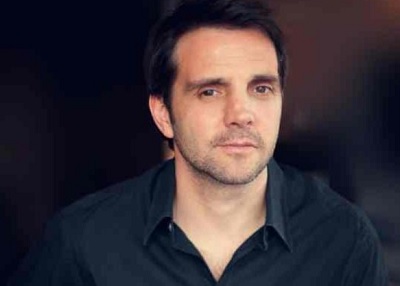We’re in an industry where people often make comparisons with these other tech platforms, because we’re in the internet business, so it’s tech, right? It’s not. It’s a content business. That is a different perspective. It means valuations and profit margins have to be seen in a different light.
Stokes: Is it being valued as a content business? I don’t think it is, in the public markets.
Baverstock: No, and that’s one of my concerns about the current western valuations of companies like King and Zynga. I think they’re not being valued in the way that they should be.
GamesBeat: What do you mean by “valued as a content business”?
Baverstock: As I say when I’m talking about the old publishers—On the one hand it’s very hard to say that a company like EA, with properties like FIFA, isn’t a tremendously valuable company. But on the other hand, we can see today that they’re struggling badly to move their existing, very valuable, very well-known IP in to the markets that are growing. So it doesn’t matter who you are today. We’re in a very fast-changing environment and you have to recognize that that IP might not transfer to wherever we’re going to be tomorrow.
Buttler: I didn’t say it’s particularly easy to invest in gaming. I think it’s actually very hard. I also think it’s virtually impossible to predict which company will create the next worldwide megahit. It’s much easier to predict what will fail. It’s much easier to see when a team doesn’t jell or when an idea’s not great. To predict where a new Supercell will come from is virtually impossible. It makes early stage investing in games very difficult.
If you look at valuations across the board, they’re not high. The valuations are high for the ones that really break out. I think the only question is a question of timing. If you can invest in a Supercell when it’s just broken out and taking off, it’s a fantastic investment. When you come in after they’ve peaked – when they’ve gone through all this and you expect their next few games will be global megahits again, with these totally breakaway economics – of course you’re at the wrong side of history, basically.
That happened to Zynga, Supercell, it’s probably happening to King. But if you can come in after they’ve broken through and they’re in this upswing – League of Legends, many other examples – then you can have a fantastic investment. The trick is to find those that are just coming out of the soup, basically, where thousands fail, and haven’t peaked yet with that global megahit. If you invest at the absolute top, then you’ll have a problem, because the next game, or the next 10 games even, will have a very hard time following that.
GamesBeat: Guillaume, what’s your view of this sort of macro environment?
Lautour: The difficulty is in trying to value creative media businesses and compare them to what VCs and investors usually do, which is internet stuff or technology companies that build up recoverable businesses. The problem with media is that there is this production race. You can make a hit and nobody knows whether you’ll ever make another hit again. If King ends up being Candy Crush and nothing else, obviously $5 billion is too high a valuation.
Somebody said it’s super difficult to invest in gaming. I don’t think it is, in fact, if it’s something you specialize in as a media investment. People who succeed with their games are talented, but they’re also very hardworking. They have to equip themselves with the proper analytical platforms we talked about. They have to understand the platforms they work on. Many people talk about multiplatforming versus being specialized in one or another platform, switching from Facebook to Android or iOS without really changing the games themselves, even though behaviors on each platform are very different.
If you’re really hardworking and well-equipped and from the right generation, it should work. Maybe not for every title, but it should work for the long term. That’s what I believe. To come back to your question, I’m looking for entrepreneurs who stick to a platform, understand it from the bottom up. There’s a pace, a rhythm, a tone you need to make a successful Facebook game. There’s a speed and difficulty level. There’s a UI specificity to publish when you do something on iOS. It’s the same for console games, the same for PC games.
You can’t adapt every single thing. If you look at shooting games on tablets, every title still has some kind of control problem. How do you control a game with your fingers with such intensity? Some genres will adapt to some platforms, some will not. The platform has to be involved in that.
Coming back to a general macro view of the market, for me, gaming is looking fantastic as an opportunity. I was an investor in technology for 15 years. I’ve never seen such a thing. We have a revolution on three different fronts. If you look at Spotify and all these other platforms, they changed music on the distribution side, but they didn’t change the production. They didn’t change the business model for the entire industry. You can look at Netflix and everything that’s changing TV today. It’s not changing production. Netflix still has to invest $100 million or more to produce House of Cards. The only thing that has changed is distribution. When you’re only changing distribution, it needs to be a big game. You need to have a critical size before you’re successful.
In gaming it’s the opposite. We’re not only seeing a revolution in distribution thanks to platforms like iOS and Android and Facebook, but we also have a revolution in business models, thanks to free-to-play, and a revolution in production costs, which have been divided by 10. All of these combined, along with the fact that Facebook evangelized for games to hundreds of millions of people who never played games before, makes it a fantastic opportunity today. We’re just at the beginning.
When you think about it, a platform like Facebook or iOS will take 30 percent of your revenues. But if you sell at retail, they’d take more than 50 percent. The business model in gaming on mobile improves the gross margin by that 20 percent, right away. This is very profitable as an industry. I’m positive on the outlook. Yes, it’s difficult to price a single hit company, but I’m convinced that the quality of the teams and the professionalism that you can find within King will eventually allow them to publish additional successes.
GamesBeat: What’s a good micro strategy for entrepreneurs in this heady environment?



